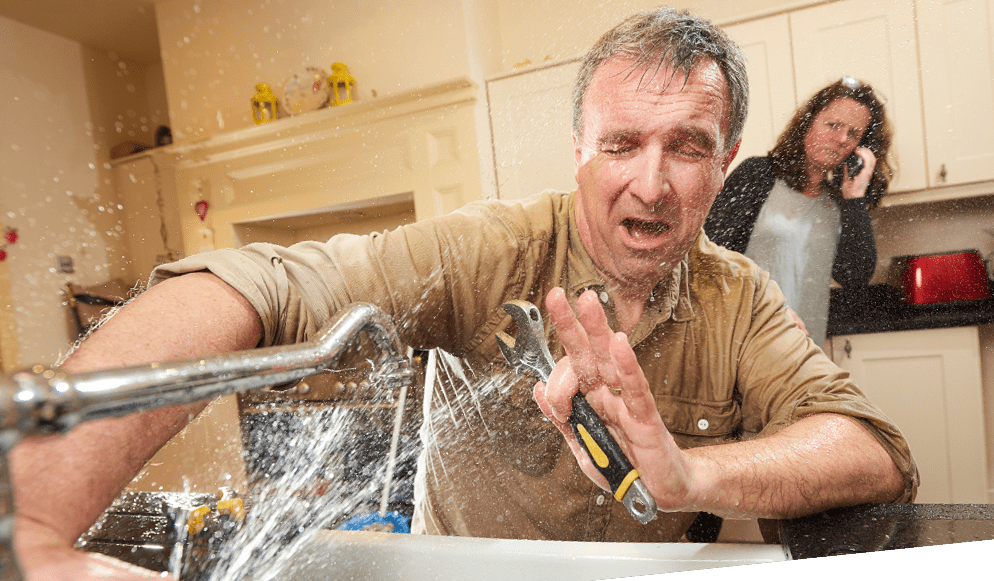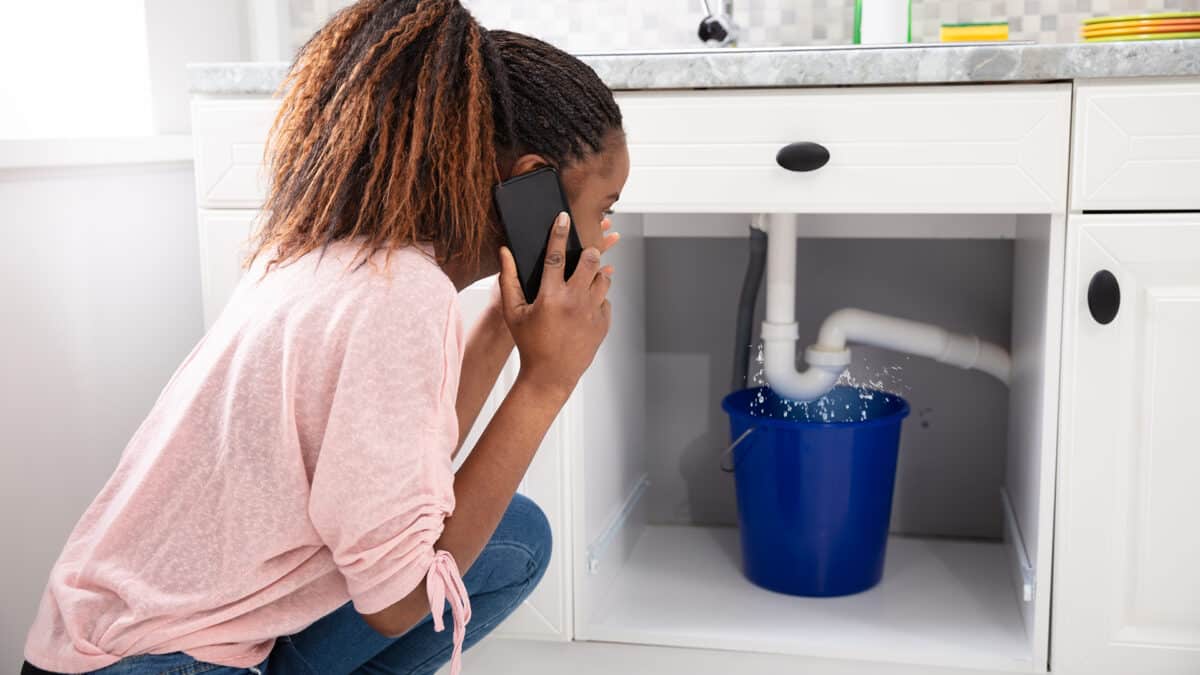Everyone may have their own individual opinion in relation to Plumbing Emergencies: Tips on What To Do Before.

Pipes emergencies can strike at any time, creating anxiety and prospective damages to your home. Whether it's a ruptured pipe, a stopped up drainpipe, or a leaky faucet, recognizing exactly how to take care of the situation till an expert plumber gets here can save you from more issues. This article gives vital emergency situation plumbing ideas to help you alleviate damage and reclaim control during a pipes dilemma.
Switch off the Supply Of Water
The first step in any pipes emergency is to turn off the supply of water. For localized concerns, such as a leaking tap or toilet, turn off the valve near the component. When it comes to a major leakage or burst pipeline, locate your home's main water shut-off shutoff and turn it off promptly. Knowing the place of these shutoffs in advance can save important time throughout an emergency.
Address Little Leakages with Short-term Solutions
Small leaks can promptly become considerable troubles if left unchecked. Use these short-term repairs till professional aid arrives:
While these solutions aren't permanent, they can help reduce water loss and damage.
Unclog Drains Pipes Securely
A clogged drain can be an aggravating and messy issue. Below's exactly how to tackle it:
If these approaches don't work, stay clear of utilizing excessive pressure, as it may intensify the clog.
Manage Overflowing Toilets
An overruning toilet can trigger instant chaos. Right here's what you need to do:
Shut down Your Water Heater
In certain emergency situations, such as a ruptured pipeline, it's important to turn off your hot water heater. This protects against getting too hot or damages to the device when water stops moving. Turn off the power supply to the water heater (electric or gas) and let it cool down to stay clear of prospective dangers.
Briefly Stop a Burst Pipe
A ruptured pipe can result in considerable water damages in minutes. To alleviate the concern:
Call a professional plumber promptly to attend to the trouble permanently.
Handle Frozen Water Lines Thoroughly
In chillier climates, icy pipelines are a common emergency situation. If you suspect a frozen pipeline:
Avoid Additional Damage
Taking quick action to reduce damage can save you money and time over time. Right here's just how:
. Have an Emergency Pipes Kit
Prepare a standard pipes emergency set to take care of minor concerns efficiently. Your set ought to consist of:
Having these devices accessible can make a substantial difference in your ability to take care of emergencies.
Know When to Call a Professional.
While quick fixes can assist briefly, specific pipes concerns call for prompt professional interest. Call a plumbing professional if:.
Promptly getting in touch with a professional makes certain the problem is resolved properly and stops additional problems.
Verdict.
Plumbing emergencies can be frustrating, but with the best expertise and devices, you can handle the scenario efficiently till assistance arrives. By turning off the water system, dealing with tiny leakages, and using short-term fixes, you can lessen damage and maintain your home safe. Keep in mind, these pointers are short-term options; constantly seek advice from a certified plumbing technician to take care of the root cause of the trouble. Preparation and fast reasoning are your ideal allies in any pipes emergency.
8 Helpful Tips for Managing Plumbing Emergencies at Home
If your plumbing system hasn’t failed once, wait for it because almost everyone has a story to tell. Sometimes, it could be simple emergencies such as a leaking pipe, a blocked cistern, or even a big burst pipe. In situations like this, you need to have some handy tips to save you some money and from possible damages.
Take care of minor issues early.
Sometimes, you could have avoided an emergency by taking proactive measures while it was still early. Some major plumbing emergencies can be a result of an ignored minor issue. We recommend that you have items like plumbing tapes and other related items. A plumbing tape can allow you to manage minor leaks before the plumber arrives.
Cut off the water supply.
This tip is essential in almost any type of leakage problem. For problems like minor leakages in the toilet or kitchen, turn off the supply that takes water to the affected pipes. If the leakage is a major pipe, you must shut off the supply valve to the entire building. This will help you avoid flooding your home and neighbors if you share a flat.
Know your plumbing system
Folks typically move into a new apartment without understanding the water supply around the building. This can prove disastrous if a water emergency arises and the plumber is far away. The previous tip will prove useless if you don’t practice this one. More importantly, know where your water shut-off valve is located – you’ll need that knowledge to prevent potential home floods.
Have some common handy tools
There are lots of plumbing emergencies that you can handle without hiring a plumber. That’s why you must keep some tools available always. Some tools that you can use to fix simple plumbing emergencies easily include plumbing tapes, screwdrivers, thread seal tapes, plungers, pliers, tape measures, and rubber gloves.
Insulate your pipes from cold
You’ll save yourself from many plumbing expenses if you protect your water pipes from the cold. This is because of the harmful effects that cold weather can have on your pipes. During winter, your pipes can burst from being overly expected to freezing temperatures. So, make sure insulators are there to keep the pipes working correctly.
Avoid practices that will clog your toilet.
Many people indulge in practices that can damage the plumbing system of the entire building. One of these is when they use their toilet to dispose-off garbage. They flush all kinds of things, such as paper towels, bandages, hairs, female sanitary products, etc., down the toilet. This will block your toilet in the long run, incurring unnecessary expenditures. Dump such waste in the trash instead.
Check your dials regularly.
Sometimes, there could be leakages in your home without noticing them in time. So, constantly monitor your water meter dial. If the dial is reading when there is nobody using water, this is an indicator that there is leaking. Check for leaks immediately. Call a plumber as soon as possible if you can’t find any.
https://www.constructionplacements.com/8-helpful-tips-for-managing-plumbing-emergencies-at-home/

As an enthusiastic person who reads about Plumbing Emergencies: Tips on What To Do Before, I imagined sharing that piece of content was worth the trouble. Sharing is nice. Helping people is fun. Bless you for being here. Don't forget to come visit our site back soon.
Apply Now